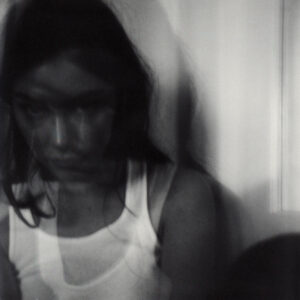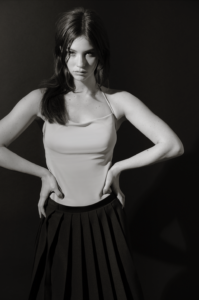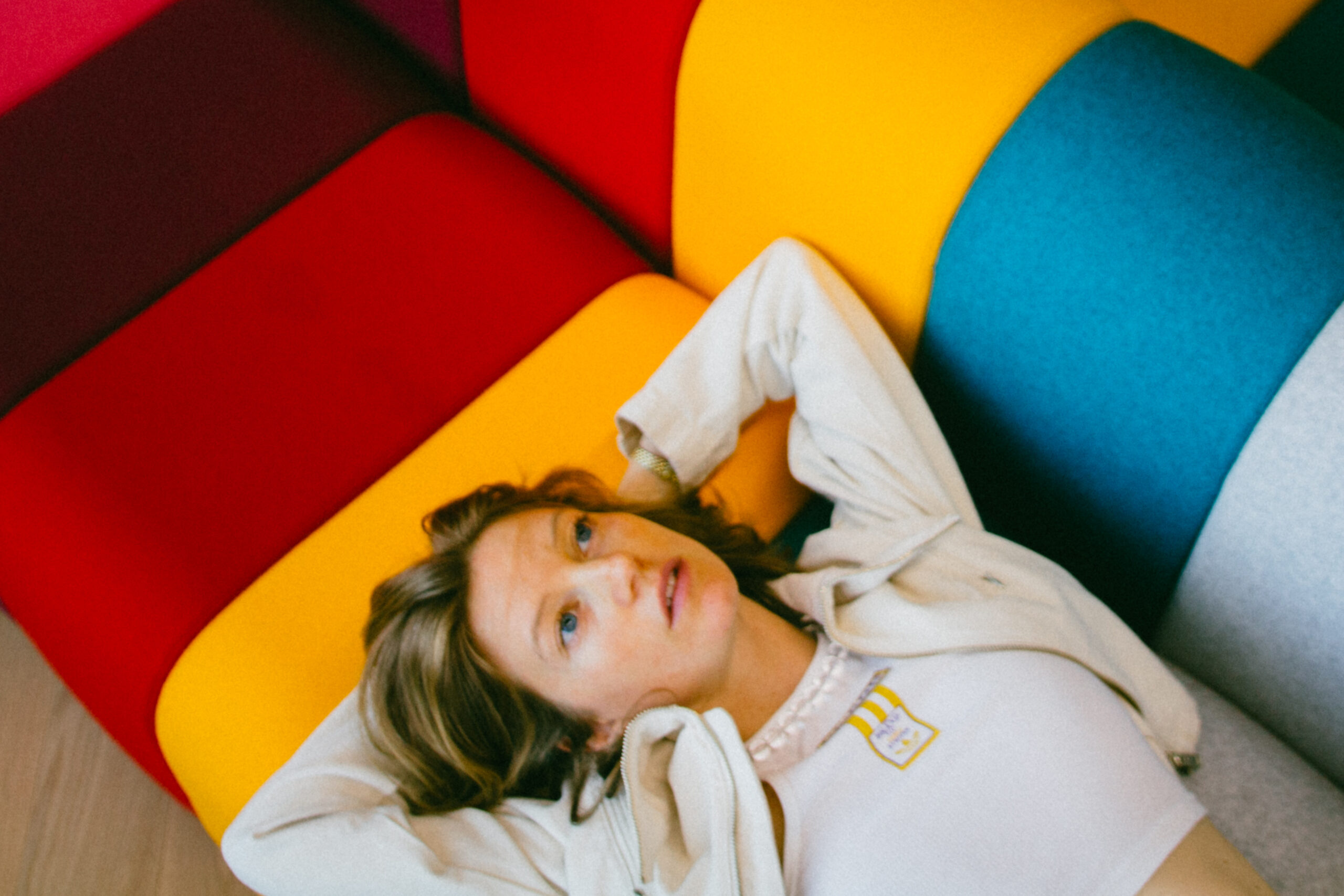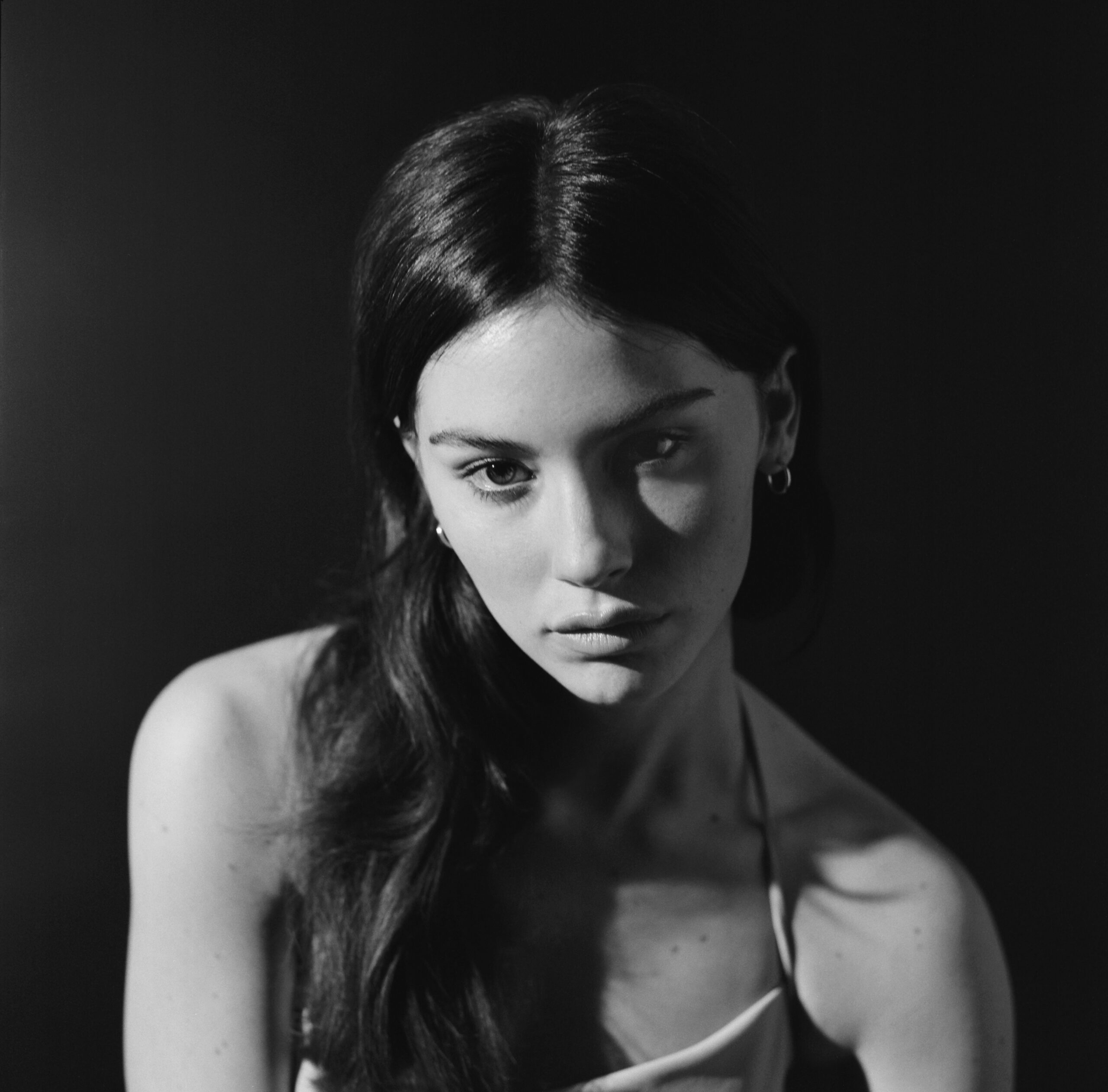Foto-© Danielle Neu
Verträumter Bedroom-Pop feiert seit einigen Jahren ein glorreiches Comeback. Besonders junge Künstlerinnen finden mit ihrer soften, vibingen Popmusik ihren Platz in einer immer diverser werdenden Musiklandschaft. Eine davon ist aktuell Gracie Abrams. Abrams? Jap, die 23-jährige Songwriterin ist die Tochter von Filmproduzent, Serien-Macher und Regisseur J. J. Abrams. Wer jetzt schon die Nepo-Baby-Keule rausholen will, sollte sich erst einmal Gracies Musik anhören. Die ist nämlich verdammt gut. Schaut man sich noch Interviews der Sängerin zu dem Thema an, merkt man zudem schnell: Gracie ist sich durchaus bewusst, was für ein Privileg ihr berühmtes Elternhaus ist. Und damit ist sie vielen anderen Kids berühmter Eltern schon meilenweit voraus.
Am 24. Februar erscheint ihr Debütalbum Good Riddance, dass auf jeden Fall das Zeug dazu hat ihre Position als aufstrebende Singer-Songwriterin und nicht länger nur „die Tochter von“ zu zementieren. Darin lässt sie ihre Zuhörerschaft an intimen Selbstzweifeln und den ganz normalen Wachstumsschmerzen des Älterwerdens teilhaben. Produziert wurde die erste LP von keinem geringeren als Aaron Dessner von The National. Und zwar in seinem längst legendären Studio in Long Pond. Wie die Zusammenarbeit mit dem Hitproduzenten ablief und ob Gracie ihre Herzschmerz-Songs eigentlichen ihren Exes vor Release zeigt, haben wir sie im Zoom-Interview gefragt.

You have been really successful since you started your career. You’ve released two EPs, played at massive festivals like Lollapalooza in Chicago, and are playing your third headline tour. All of that before you even released your debut album – does the success you’ve had so far add to the pressure, or does it take it off when it comes to the release of Good Riddance?
I don’t feel real pressure, just because I have already gotten everything out of the process of making this album. If it gets a positive reception, then I guess I am lucky. I am actually feeling less pressure just because of how healthy the environment of making it was to work in. I have personally really benefitted from everything I was able to process through making this album. So I guess, luckily, no, there is not a lot of pressure.
Can you talk a bit about the initial spark and how the album came about?
Meeting Aaron (Dessner) was just so eye-opening in imagining a new way of working. We were so excited to dive in and explore the kind of work we were gonna make together. It became very obvious upon the first trip to Long Pond that we would spend real time focusing on creating a full-length album. We both are people that very much appreciate narrative and forming the arc of a story. It was the most fun I’ve ever had.
Did any of the initial songs make it onto the final form of the album?
In some ways, yes. It was sweet to reflect on all those demos when I talked to him recently. We talked about how there were very few times when we’ve let ourselves down with what we had made. There were pieces in everything that we had made that we had fallen in love with. So in a way yes, there are some things of that on the album, not explicitly. But all the seeds we had made have somewhat contributed to the final sonic identity of Good Riddance.
Did you start writing songs with Aaron right off the bet when you first met him?
Immediately, yes. I was there for about a week, and we made two or three songs every day. It was so natural working together. So we knew we’d spend some real time exploring what that meant.
What’s the artistic vision of the record, you’d say? What inspired you apart from the process with Aaron?
I felt very inspired by space. Having space to really absorb the lyrics. In the songs it was easy to cultivate pockets of space and I think Aaron and I really appreciated that. Working in Long Pond, there is something that lends itself to making these more delicate sounds and instruments. We really used what was in front of us and had a lot of fun experimenting and finding joy in imperfections.

In your opening song Best, you talk a lot about doubting yourself, and it is such an intimate song to open the album with.
The song to me is almost like an apology. I always used songwriting as the place where I can express songs that I don’t feel confident enough to say like that. It felt very right to me to open the album with this song because it feels like it really sets the stage for the rest of the project. The album isn’t just about one thing or one person by any means, but I did appreciate the way Best goes into detail in all the ways I felt I fell short in a very important time in my life. It is also the most accountable I have ever been in a song. That has in general something that I have been conscious of working on.
The whole record feels very nostalgic. Would you say you are a person that lives in the past more than the present?
Not anymore, which is a massive relief. I definitely used to be and harbored a lot of resentment as the result of that. Making this album was one of a handful of tools that got me out of that way of thinking. So, coming back to your earlier question about pressure – it is hard to feel that if you’re just being present and focus on the fulfillment this album has brought me. It helped me very much moving on from the things that I wrote about.
 You said in an interview that writing music is like journaling for you. Journaling of course is very intimate, and the results don’t see the light of day, but your songs do. Have you ever been in a situation where the songs you’ve written felt too personal to share with the world?
You said in an interview that writing music is like journaling for you. Journaling of course is very intimate, and the results don’t see the light of day, but your songs do. Have you ever been in a situation where the songs you’ve written felt too personal to share with the world?
I definitely have written so many songs that aren’t out, but I don’t think for the sake of keeping something private. It is more so about timing. I had many moments during the process of this album when we finished a song and I said in the room that I couldn’t release it. Because it felt so explicitly obvious about a situation, or it just felt too soon. The lyrics were always what made me feel the most connected to artists. When they talked about their experiences, grief, loss, joy. It is often so personal that you think you are the only person who has ever experienced that feeling, and then you are made aware that you are not alone in that feeling. Aaron constantly helped me keep that in mind when making the album.
On Good Riddance, in some songs you directly address a former lover, and I was wondering how you go about the one-sidedness of writing songs about real-life experiences. Do you tell people that you have written a song about them, or just process it for yourself and release the song and if they hear it, that’s that?
It will always depend. It is a tough, weird and unique situation. I guess it is less common for somebody’s journaled work to then be public. I am personally just working on preserving my energy. Releasing music, writing it, is such a positively exhausting element to it and I feel like most of the time I don’t want to have an additional conversation to that. It’s a bummer, too, not to be able to sit in front of every single person who listens to my music and give them background context. I am also getting more comfortable with the idea of not wanting to do that anymore. I just, again, feel solid in the work that I have done. This is the most fulfilled I have felt by writing since I was a kid. So right now I am just trying not to do the extra stressing of how somebody might perceive it because I cannot control that anyway.
I’ve noticed that you compare heartbreak to death in many of your lyrics on the record. For example, in Where Do We Go Now. There is no coming back from death, but from heartbreak there is. What are your tips for anyone going through a heartbreak right now?
It is just something that you have to let yourself feel. There is something to be said for a good distraction, but I also think that overcompensation and pushing feelings down don’t work. I found that I always feel closer to myself after feeling something heavily. There is no fix. Some tool I have always used is writing about it. More so in journaling than songwriting, and that always helps. And I know that resources like therapy aren’t always available, but even just talking to a friend that you trust deeply. There can be shame or embarrassment attached to feeling low, but talking about it always helps.











